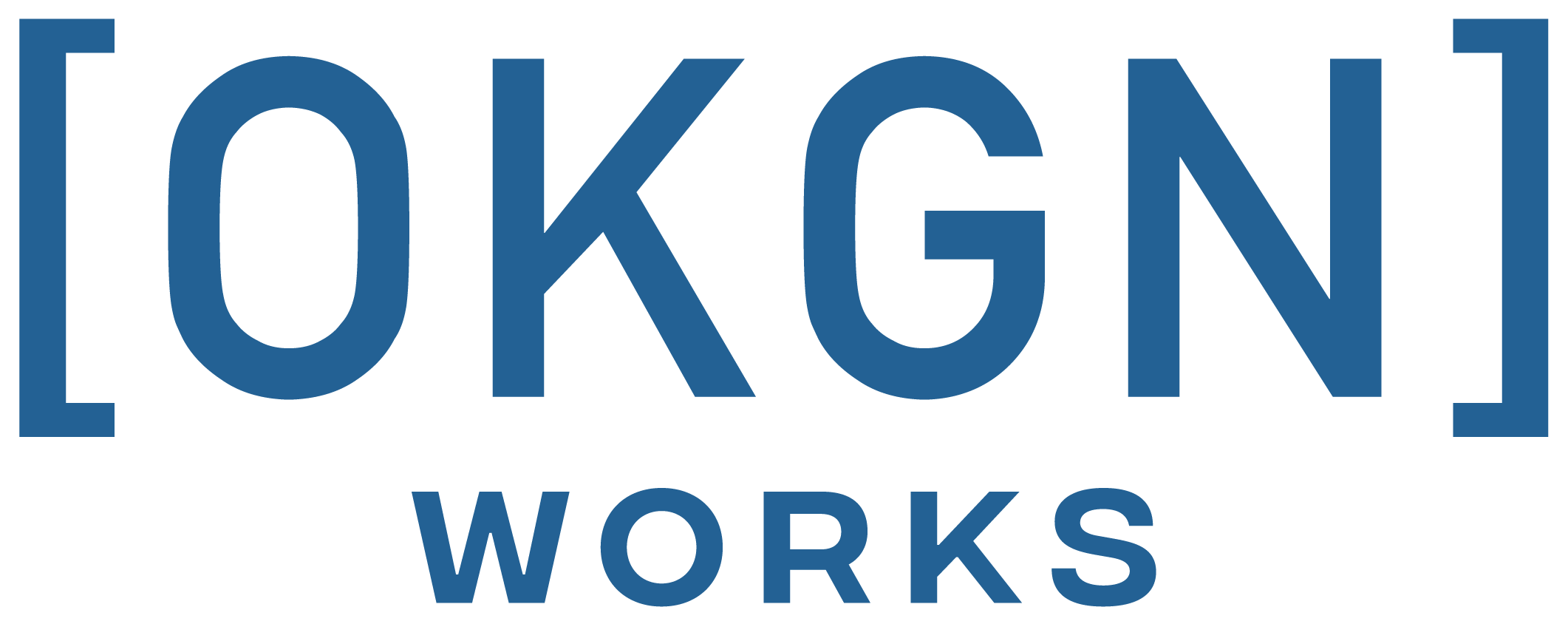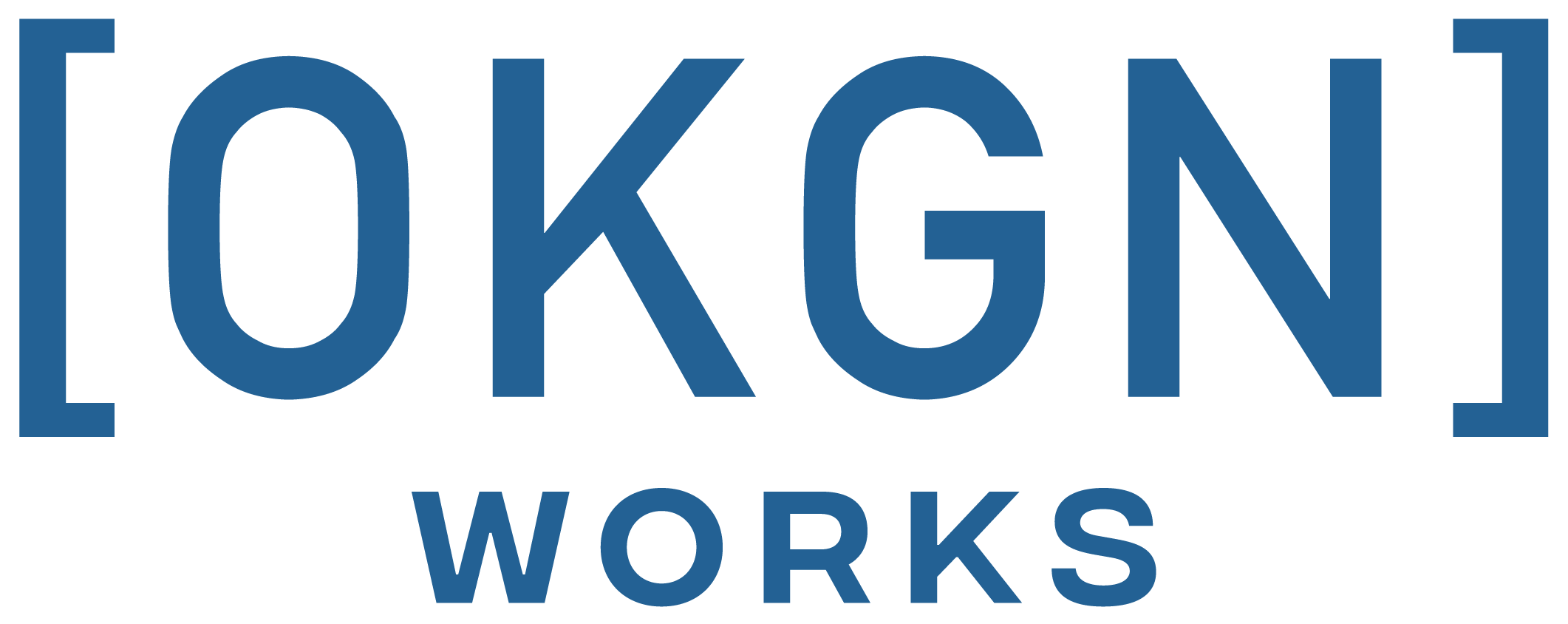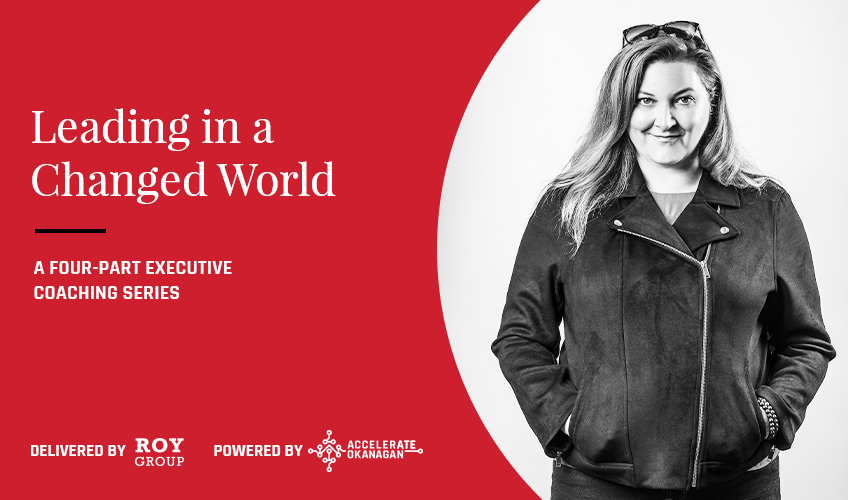The world has changed a lot in the last six months and leaders have had to steer the ship and implement rapid changes to stay afloat. To help leaders navigate these times, Accelerate Okanagan is introducing a new four-week leadership series: Leading in a Changed World. Over the course of the series, Roy Group will be highlighting a collection of concepts, approaches, and tools to help leaders rise up in a complex and unpredictable world.
We sat down with Yolanda Moran, Practice Lead and Training Facilitator from the Roy Group to learn more about the training and what leaders can expect from Leading in a Changed World.
Why is it important to participate in training like this?
When we don’t create space for ourselves to assess, take stock, and take ourselves out of the minutiae of the moment, then we don’t create the opportunity for ourselves to become more strategic as leaders. We’re not taking care of what our needs are, we’re just reacting.
I feel very strongly that the methods we teach at Roy Group—a coaching approach to leadership—really enables leaders to elicit the best from their people rather than telling someone what they need to do. It is a profound experience for leaders to draw out what might be getting in someone’s way, coaching someone towards their own desired outcomes, their solution, and their own way forward.
Who is this training for?
This training is for anyone that is connected to the tech community who is either a CEO, founder, or someone who is in a leadership position. Leaders who are willing to collaborate and willing to learn from the community, who are looking for new approaches and usable tools to help them increase their contribution during this time will find value in this leadership series.
What takeaways can leaders expect from this training?
Participants can expect to discuss and explore the uniqueness of our times, and what that means for those providing leadership. The training is about giving applicable tools to adopting a coach-approach to leadership. We’ll be looking at what it means to discern the difference between simple, complex, and chaotic systems, and the leadership approaches most effective within each.
Participants will engage in small groups to practice leadership drills and experience ideas, approaches, and tools that they can use with others.
Why is it important to pause and reflect on the last six months?
There is real value in looking at what we have just experienced and what we are still experiencing. Trying to assess and look at it from the outside for a moment instead of constantly being “in it”. This training opportunity gives leaders space and the ability to collaborate and share their experiences.
I think that if we allow too much time to pass before we reflect, our mind plays tricks on us. The more time that passes, the less likely it is that we are going to remember the little nuances—what exactly did that person say or how did it make us feel? How did we react or how did our conduct at that moment impact what happened next? The sooner that you create the space to do that, the better. Particularly in times like these, if you are a leader and you haven’t had a chance to reflect on your conduct or how our current world has impacted us, this is a great time to do it.
Do you see this training as providing long-term benefits?
If we allow circumstances that are out of our control to dictate what comes next, it’s impossible to move forward. We want leaders to go from being reactionary to being proactive, from ‘solving to resolving’. At Roy Group, we talk a lot about practice—the practice of coaching, the practice of leadership. And it is times like right now where I feel like we need those skills the most, and it’s what we’ve been practicing for.
Being a great leader in the times that we are going through, resilience is clearly a fundamental trait, a characteristic that we all need to be cultivating—having the ability to recalibrate, take it all in and make decisions with a plan, allowing you to be proactive. Developing yourself to hopefully come out the other side a little bit better is something all leaders should be interested in.
Ready to register? Sign up here.
Questions about the training? Connect with Scale Up Program Lead, Fraser Johnston.






